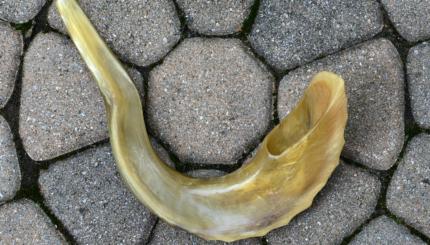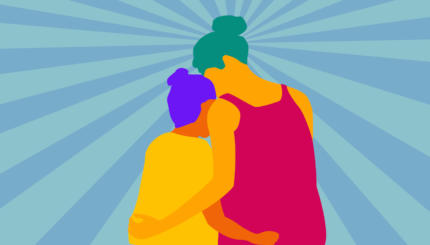This was a post that previous appeared on the MyJewishLearning/Jewish Book Council blog.
As I write this blog post, I am preparing to teach at Occupy Wall Street on Monday. Following a successful Kol Nidrei service, a Jewish contingent there has constructed a sukkah — the temporary hut in which Jews traditionally eat — and even sleep — during Sukkot.
Since I don’t use the subway during the holidays or Shabbat, I won’t get to see the
in person until tomorrow. But sitting in my own sukkah these past few days, I have been thinking a lot about the paradox of protection and vulnerability that characterizes
.
The sukkah represents both of these poles—on the one hand, the fragile
skhakh
(covering of leaves, branches, and other natural materials) that constitutes the roof of the sukkah leaves us almost entirely exposed to the elements. Over the past few days, we’ve endured quite a few drizzles and gusts of wind, as well as bugs and the general banging and clanging of the Manhattan streets. (When the rain gets serious, though, there’s no obligation to remain in the sukkah—the holiday is supposed to be enjoyable.) On the other hand, the skhakh also reminds us of the anenei hakavod (clouds of glory)—the Divine Presence said to have accompanied the ancient Israelites during their trek to freedom. Sukkot doesn’t try to resolve this paradox—rather, the sukkah forces us simultaneously to experience both fragility and divine protection. Through this experience, we learn that the seemingly-strongest structures can sometimes fail to protect us, while the most fragile structures can help us feel protected.
The movement to Occupy Wall Street (and many other places around the world) has also played with these two axes of fragility and strength. In placing themselves physically in the centers of financial power, these protests force us to question our assumptions about what is strong and what is weak. We often assume that those with wealth and power will always have wealth and power, that corporations will always be able to call the shots, and that those with less access to wealth will never have power.
But the occupiers, who make themselves vulnerable by camping outside and by exposing themselves to arrest, have developed more strength than many of us might have expected.
I will teach tomorrow from a tiny, fragile sukkah. It will be cool and windy. It may rain. And yet, even within this vulnerability, I will feel myself protected by the strength all around me.


